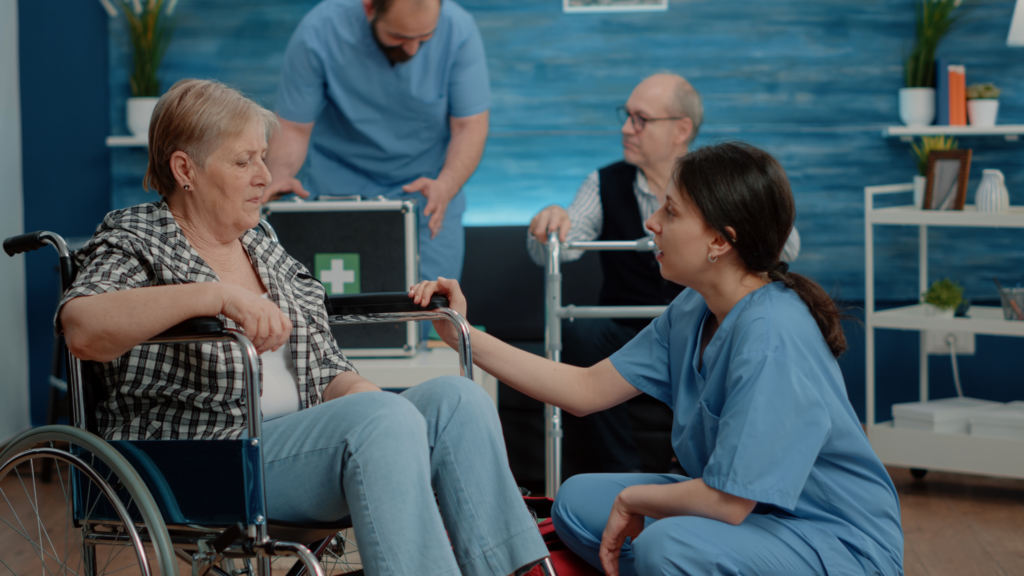Navigating Chronic Joint Pain: Effective Pain Management Strategies

Chronic joint pain, characterized by persistent discomfort and stiffness in one or more joints, can significantly impact an individual’s physical and emotional well-being. Conditions such as arthritis, osteoarthritis, and rheumatoid arthritis are common causes of chronic joint pain. While there may not be a cure for all types of chronic joint pain, effective pain management strategies can significantly improve quality of life, reduce limitations, and enhance overall function.
Common Causes And Symptoms of Chronic Joint Pain
- Osteoarthritis: A degenerative condition where cartilage wears down over time.
- Rheumatoid Arthritis: An autoimmune disorder that causes inflammation in the joints.
- Gout: A type of arthritis caused by uric acid buildup in the joints.
- Injuries: Previous injuries can lead to chronic pain due to improper healing or recurring stress.
- Other Causes: Lupus, fibromyalgia, and infections can also contribute.
Key Symptoms of Chronic Joint Pain
- Persistent pain in affected joints
- Swelling and stiffness
- Reduced range of motion
- Fatigue and general discomfort
Pain Management Strategies
Lifestyle Modifications
-
Maintaining a Healthy Weight
Excess body weight increases stress on weight-bearing joints, such as the knees and hips. A combination of a balanced diet and regular exercise can help reduce joint pain.
-
Regular Physical Activity
Low-impact exercises like swimming, cycling, and yoga improve joint flexibility and strengthen surrounding muscles. Stretching routines can also help maintain range of motion.
Physical Therapy
A physical therapist can design a personalized exercise program to strengthen muscles and improve joint function. They may also use techniques like ultrasound therapy, heat/cold therapy, or electrical stimulation for pain relief.
Medications
- Over-the-Counter Pain Relievers
- Acetaminophen: Effective for mild to moderate pain.
- NSAIDs: Ibuprofen and naproxen reduce both pain and inflammation.
-
Prescription Medications
- Corticosteroids
Reduce inflammation and are often injected directly into the joint.
-
Disease-Modifying Antirheumatic Drugs (DMARDs)
Commonly used for rheumatoid arthritis.
-
Biologics
Target specific pathways in the immune system to reduce inflammation.
Complementary and Alternative Therapies
-
Acupuncture
This traditional Chinese medicine technique involves inserting thin needles into specific points on the body to relieve pain and improve energy flow.
-
Chiropractic Care
Spinal adjustments and manipulations can alleviate pain by improving joint alignment and reducing pressure on nerves.
-
Herbal Remedies and Supplements
-
-
Glucosamine and Chondroitin: May help with cartilage repair and reduce pain.
-
Turmeric: Contains curcumin, an anti-inflammatory compound.
-
Omega-3 Fatty Acids: Found in fish oil, these supplements may reduce joint stiffness and pain.
-
Interventional Procedures
- Joint Injections
- Corticosteroid Injections: Provide temporary relief for inflammation.
- Hyaluronic Acid Injections: Improve joint lubrication and reduce pain.
-
Nerve Blocks
Local anesthetics or steroids are injected near specific nerves to block pain signals.
-
Radiofrequency Ablation (RFA)
This minimally invasive procedure uses heat to disable nerves transmitting pain signals.
Surgical Options
-
Arthroscopy
A minimally invasive surgery that allows doctors to diagnose and treat joint problems.
-
Joint Replacement
For severe cases, replacing the damaged joint with an artificial one can restore function and reduce pain.
-
Fusion Surgery
Involves fusing two bones in a joint together to prevent movement and reduce pain.
Advanced Technologies in Pain Management
Wearable Devices
Wearables like TENS (Transcutaneous Electrical Nerve Stimulation) devices offer non-invasive pain relief by delivering electrical impulses to the affected area.
Regenerative Medicine
-
Platelet-Rich Plasma (PRP) Therapy
Uses the patient’s blood components to promote healing.
-
Stem Cell Therapy
Regenerates damaged tissues in the joint.
Artificial Intelligence (AI) and Apps
AI-powered apps can provide personalized exercise routines, monitor pain levels, and offer daily tips for pain management.
Prevention Tips
-
Protect Your Joints
Avoid repetitive stress on joints and use assistive devices if necessary.
-
Stay Active
Regular movement helps maintain joint function and reduces stiffness.
-
Balanced Diet
Consume foods rich in antioxidants, vitamins, and minerals to support joint health.
Conclusion
Managing chronic joint pain requires a holistic approach that combines medical treatments, lifestyle changes, and emotional well-being strategies. By staying proactive and collaborating with healthcare professionals, individuals can significantly improve their quality of life despite the challenges of chronic joint pain.
Contact our Pain management clinic for chronic joint pain treatment (469) 805-4561 or visit us https://specialtycareclinics.com/locations/fort-worth/
